

The following is the maiden statement to the House of Representatives by Marlene Malahoo Forte in her role as minister of legal and constitutional affairs in the newly created Ministry of Legal and Constitutional Affairs. Her presentation was made on Tuesday (January 18).
On January 10, 2022, Prime Minister Andrew Holness announced the creation of the new Ministry of Legal and
Constitutional Affairs (MLCA). The following day – Tuesday January 11, 2022, I was sworn in, as the portfolio minster. I thank the Prime Minister for the confidence he has reposed in me, to entrust me with the leadership of this very important ministry. Mr Wayne Robertson, chief technical director in the Office of the Prime Minister (OPM) has been assigned permanent secretary (Actg).
This ministerial statement is intended to do three things: firstly, to advise this Honourable House of the assigned subjects and departments (at this time); secondly, to inform of the context in which this ministry has been created; and thirdly, to indicate how it is intended that this ministry will be operationalised.
There are four subjects and three departments. The assigned subjects are: i) legal reform; ii) constitutional reform; iii) legal education; and iv) protection of human rights.
The departments are: i) Office of the Chief Parliamentary Counsel (OCP); ii) Legal Reform Department (LRD); and iii) the Law Revision Secretariat. The Office of the Public Defender also falls within this portfolio by virtue of the assignment of the subject of protection of human rights.
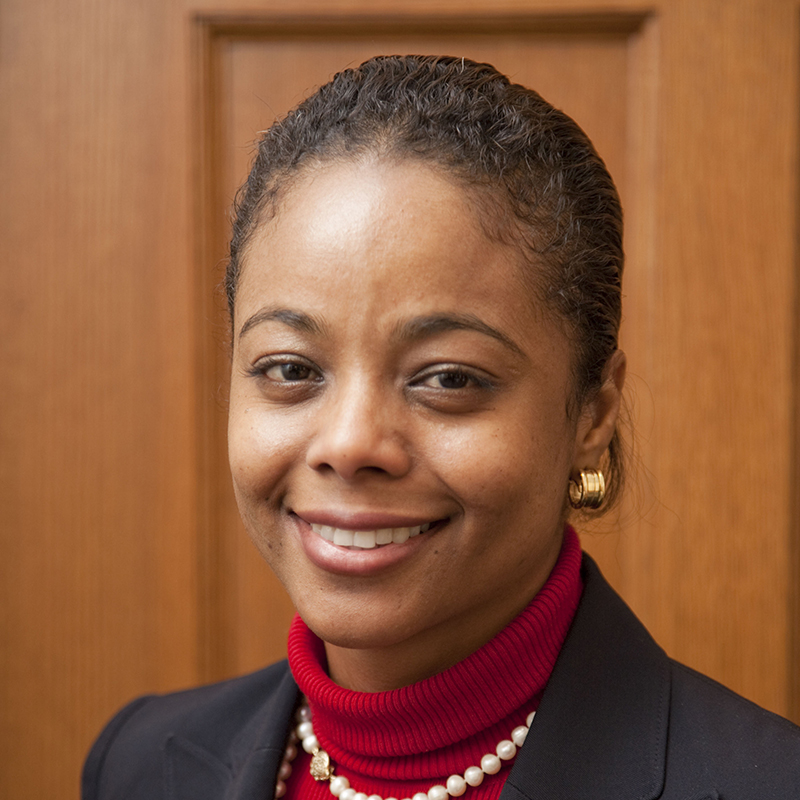
The Ministry of Legal & Constitutional Affairs is established to take charge of, and give focused attention to, the Government of Jamaica’s legislative agenda and its legal and constitutional reform aspirations. The creation may be regarded as the first serious attempt by any Head of Government, to revisit, holistically, the legal and constitutional infrastructure of the Jamaica nation state; since the last time this kind of work was set before us on the cusp (and in the immediate aftermath) of nationhood, some 60 years ago.
The culmination of the re-write of Chapter III of the Constitution of Jamaica, with the passage of the Charter of Fundamental Rights and Freedoms over a decade ago, has been the closest we have come to any fundamental constitutional reform since Independence. That monumental achievement should have been followed by a comprehensive review of the Laws of Jamaica to make them compliant with the Charter, given its binding nature and the significant narrowing of the savings-clause. Yet, this comprehensive review remains undone, leaving the legal architecture in an unsatisfactory state, even though some work on the 19th Century laws on our books has commenced.
Jamaica’s colonial past has left us with very mixed views about the extent and exercise of state power. The sad reality is that so many of our people have, in the past, experienced or witnessed the oppressive hand of the state. Not only are their tales of negative first experience with the law carried in the news, but they are told across generations in families and communities and are also recorded in our law reports. Many cases have been brought against the State, successfully. The lessons are still being learned to help us avoid the mistakes of the past.

Even though many positive changes have been made over time – through legislative and other processes – to improve how the State discharges its responsibility to the people, much distrust lingers. This lingering distrust is often accompanied by cynicism in many quarters about, for example, the real needs of the State to effectively enable the government to appropriately respond to nefarious acts that threaten or undermine its legitimacy.
The constitutional power entrusted to the Parliament to make laws is so entrusted for the purposes of peace, order, and good government. (See section 48(1) Constitution of Jamaica). The proper exercise of this power requires very focused attention inside the Parliament, as well as outside of it, where important related decisions are taken about the content of our laws. This move by Prime Minister Holness reflects the priority he places on working more earnestly to transform Jamaica into a peaceful, law-abiding nation, with government (headed by him) leading by example.
Currently, the three major legal departments (LRD, OCP and AttorneyGeneral’s Chambers (AGC)) proximately involved in the law-making process have been bearing the brunt of the workload. They have been accused of not turning over the work fast enough to ensure a speedier passage of laws, but that is not quite true.
Although the public, the Parliament and Ministers of Government may be familiar with the Legal Reform Department through the technical support it provides to Joint Select Committees of Parliament, the Legislation Committee of Cabinet, and the Cabinet itself, the LRD’s mandate is to methodically examine and review, constantly, the Laws of Jamaica. This is an audit-function to ascertain adequacy and relevance of the laws, to in turn refer to the policymakers – those in need of update by way of amendment, repeal and/or replacement.
SUBMISSION OF POLICY DOCUMENTS CURRENTLY THE EXCEPTION RATHER THAN THE NORM
Where the policymakers themselves propose new laws, they are supposed to submit the policies and supporting documents to the LRD for critical evaluation, for the LRD to determine, inter alia, whether the subject-matter of a proposed law is already provided for in existing laws or whether existing laws go far enough, the role of other laws (referred to as ‘companion legislation’ that may fall within or outside the particular ministry), as well as whether the proposal is constitutional – although it is the AGC (outside of the courts) which ultimately opines on the constitutionality of any proposal. It means therefore that the policies and supporting documents, must also be submitted to the AGC for opinion on the legal and constitutional issues that arise. Currently, the submission of policy documents is the exception rather than the norm. This puts the LRD in a reactionary role.
We do know that for a proper audit to be done the auditor needs all records. This is where the Law Revision Secretariat comes in. The undesirable status quo cries out for the urgent attention that this new Ministry has been created to provide.
The Law Revision Act provides for functions to be carried out by Law Commissioners. However, the entire system will have to be completely revamped, starting with a re-conceptualisation of the enabling law and the role of the Statute Law Commissioners vis-a-vis the day-to-day tasks of law revision. Specific knowledge, skillsets and competence levels are required to revise laws; and the system must be designed and resourced to make it fit for purpose. We must reduce the lag time between enactment and inclusion in the Revised Laws of Jamaica to ensure that the information provided online and elsewhere is up-to-date and accurate. Even our judges have fallen into error, relying on the outdated publications. I gather we are now up to 2017 laws though 2018 have been prepared.
It is like going through a maze to ascertain the complete and accurate state of the law on any given subject matter. We must revisit how laws are actually revised. Currently, the Long Title, Memorandum of Objects and transitional provisions are not included in the Revised Laws, neither do the Revised Laws indicate which provisions have been repealed; and the renumbering of sections and sub-sections is out-of-whack.
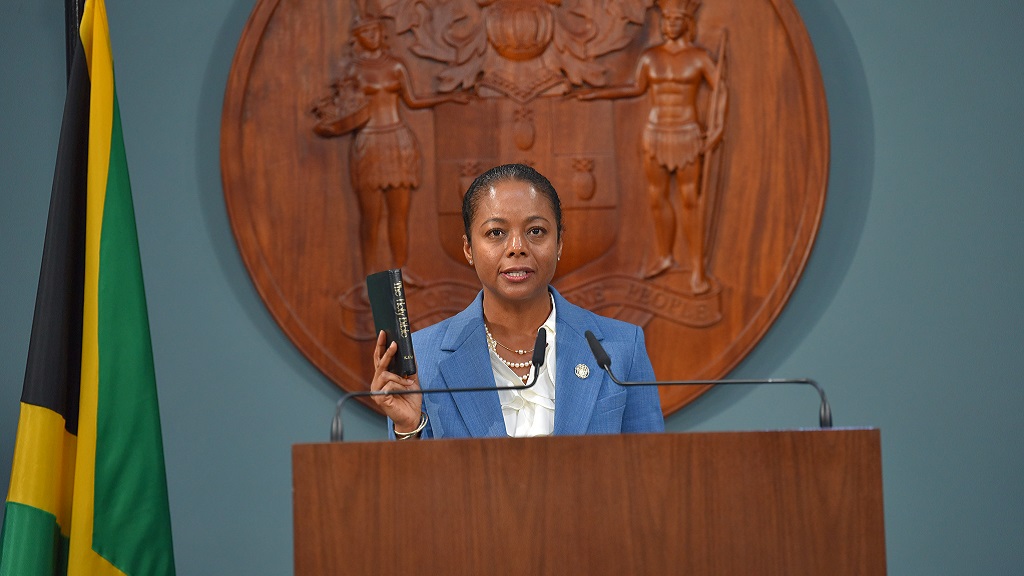
Although the MLCA is, at this time, comprised of the OCP, LRD (and the Law Revision Secretariat), the AGC will be a crucial part of the work as one of the other major planks of the legal affairs of government. As a matter of fact, these three departments have been the ones struggling with the legislative agenda over the years. Now that legal services have been recentralised under the Office of the Attorney-General, legal service units (LSUs) within Ministries will take on a more prominent role, in conjunction with the policy units.
All ministries will be required to work within settled timeframe, even and especially when matters are time sensitive. The current practice where, as deadlines approach, the matters are then launched with the OCP, LRD or AGC – not leaving those departments (especially the OCP) enough time to do its share of work, when the MDAs had already maximised their time in their units, will not be carried forward. The timeframe required to, inter alia, settle policy issues, answer questions, get approvals, prepare drafting instructions and drafts, will be set. It is simply intolerable for us to operate without set timelines. No longer will instructing officers be allowed to put the minimum in what they send, having taken maximum time to do it.
The OCP is particularly affected by the current chaos because it is at the end of the production chain – if we see the lawmaking process as a production chain. The assessment shows that from the time of the Throne Speech, Ministries meander and then, near the end of the legislative year, they send instructions, as if only to say instructions have been issued. Then the impression is given that matters are with OCP forever, when sufficient time was not given to produce drafts.
The Prime Minister has concluded that what currently obtains is simply not good enough, and certainly not conducive to producing quality work. Whether the approach has been deliberate (when no answers to questions are forthcoming) or not the resultant pressure cooker situation that minimises time for quality work is unacceptable.
The appropriate training will be provided, which is why Legal Education is one of the assigned subject matters.
Traditionally, legal education was viewed in relation to the law school and the Council of Legal Education. However, under this new dispensation, legal education will include inter-governmental education on the laws required to make and keep government lawful.
Each Ministry must now designate a responsible officer for sending instructions, who should be a legal officer working with the policy official.
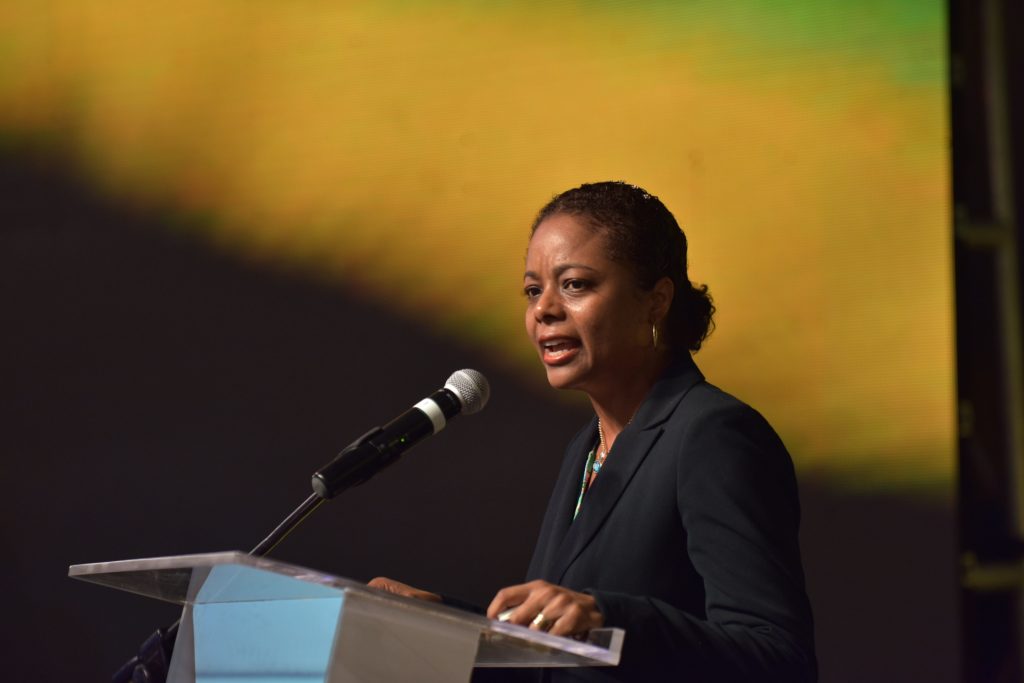
Policy officials who work without legal officers cannot answer legal questions and legal officers who work without policy officials cannot answer legal questions.
I am pleased to report that in the week since the Ministry has been created, consultations with Ministries have already begun. I have also met with the teams from each department (except the law school).
The work of the Ministry of Legal and Constitution Affairs will crosscut all of government to provide specialist guidance and assistance to each ministry (and its departments, agencies, and other bodies, by extension) with the steps to be taken to uphold and defend the Constitution and the laws of Jamaica in the conscientious and impartial discharge of portfolio responsibilities to the people of Jamaica. This work is also designed to help re-set the stage to move Jamaica from a state of unacceptable lawlessness to desired lawfulness.
I want all Jamaicans – at home and abroad – to know that the tasks that will flow from this work will require input from practically everyone, especially our most competent and experienced minds.
The Prime Minister is aware that there are many questions to be answered. Already, many have been asked and answered, and in time, we will provide more answers. Right now, we ask that you allow the work to evolve. Only by so doing will the benefits become evident.
Much has been given to this Jamaica Labour Party Administration led by the Most Honourable Andrew Michael Holness, ON, PC, MP and much is expected from it. The law of great expectations is a powerful motivator… and
when expectations rise, we’re inclined to rise with them. May this be the tide on which we all rise.


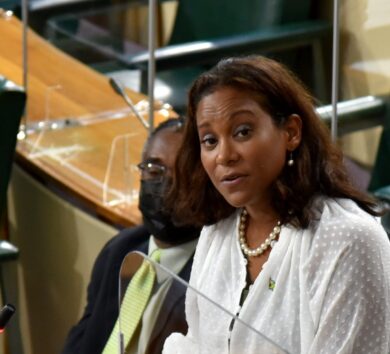
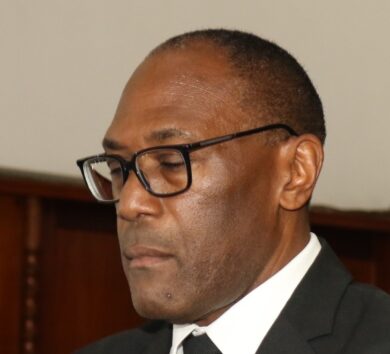



Comments